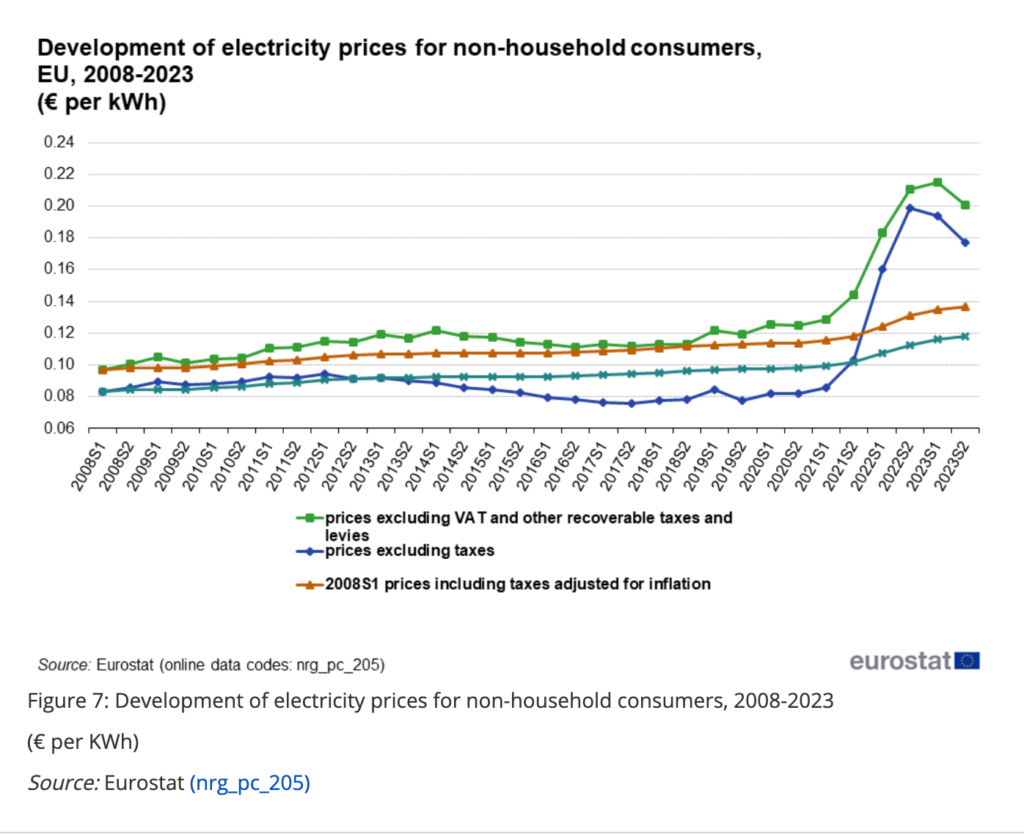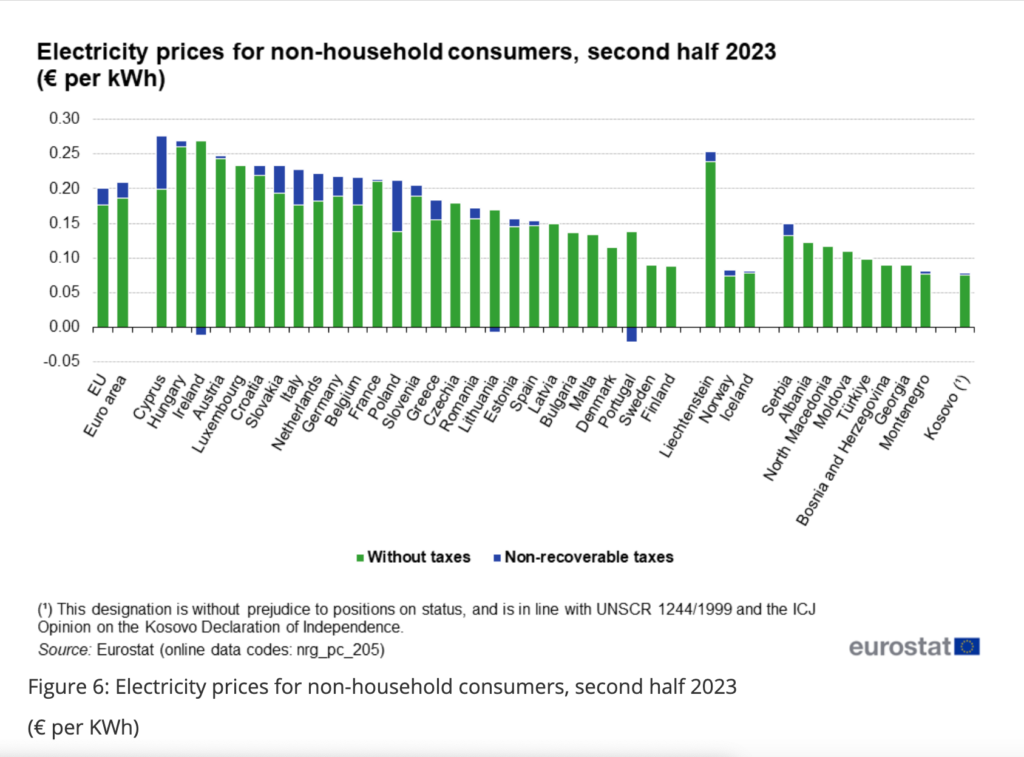Greece is set to build a new data center as part of its push to integrate into Europe’s AI landscape.

Greece has announced new intentions to construct a data center in the country, which is part of the country’s ongoing efforts to gradually integrate itself into the rapidly developing artificial intelligence landscape in Europe.
On September 12, the business Data4, which is based in Paris, said that it intends to invest roughly 300 million euros, which is equivalent to $331 million, in the development of a new data center hub in Paiania, which is located just outside of Athens, the capital of Greece.
According to Bloomberg, Olivier Micheli, Data4’s Chief Executive Officer, is currently negotiating with existing lenders and local Greek banks to secure funding for the project.
Micheli stated that the new website would significantly contribute to the digital ecosystem and the local economy. The corporation manages multiple data centers in six different European nations, including Greece, with a goal of investing seven billion euros for expansion by 2030.
The company has the capability of constructing two additional centers in its upcoming hub in Greece, which would require an additional two hundred million euros. Micheli, on the other hand, stated that negotiations with the local authorities on the extra investments are still ongoing.
Large facilities equipped with a vast array of computing equipment typically serve as data centers. Bitcoin mining plants are a positive example of this phenomenon in the cryptocurrency world.
These facilities typically locate in regions with inexpensive energy, like Siberia, which contributes to the cost-effective operation of such power-hungry facilities, despite their high energy consumption.
Large quantities of processing power are required for the most powerful artificial intelligence models in the world, such as OpenAI’s GPT-4 and Anthropic’s Claude, to function effectively at such a high level.
As these models become more and more ingrained in contemporary life, data centers will play an increasingly important role in supplying the electricity that is required for them to operate efficiently.
Significant artificial intelligence (AI) companies, such as Microsoft, have been investing money in data centers and AI-related activities at various locations in Europe.
In February of 2024, the firm announced that it will be investing two billion dollars in Spain to create artificial intelligence data centers. Data centers, on the other hand, aren’t known for having the most affordable energy costs, and many of Europe’s most significant locations don’t have the best energy rates.
The data provided by Eurostat indicates that between the years 2021 and 2023, the prices of energy for users in Europe who are not householders witnessed a significant increase.

Energy prices continue to be prohibitively expensive, despite the fact that there was a minor decrease in the second half of 2023. Greece finds itself on the higher end of the price spectrum with slightly over 0.15 euros per kilowatt-hour, even if the average price in the EU during the second half of 2023.

In spite of the region’s expensive energy situation, Europe has taken a proactive approach when it comes to preparing the region for breakthroughs in artificial intelligence, whether those developments are for the better or for the worse.
Legislators from all over the European Union signed their EU Artificial Intelligence Act into law this year, and it went into effect on August 1st. Greece would be subject to the Act on Artificial Intelligence, which governs the development and deployment of artificial intelligence systems in the region.
In October 2023, the Greek government established an artificial intelligence advisory council with the goal of developing a national strategy. Some of the most prominent technology, ethics, and science specialists in the country comprised this committee.
However, major technology developers interested in launching their goods in the region have already opposed the EU’s policies. In August, companies in the IT sector wrote a letter to lawmakers in the European Union, requesting further time to comply with the regulations.
Earlier, in July, Meta announced that it will not be introducing its new artificial intelligence solutions in the European Union, citing “regulatory uncertainty” as the reason. On September 6, Apple introduced its most recent iPhone model, the iPhone 16, which includes new artificial intelligence elements that were not present in devices located in the European Union.

